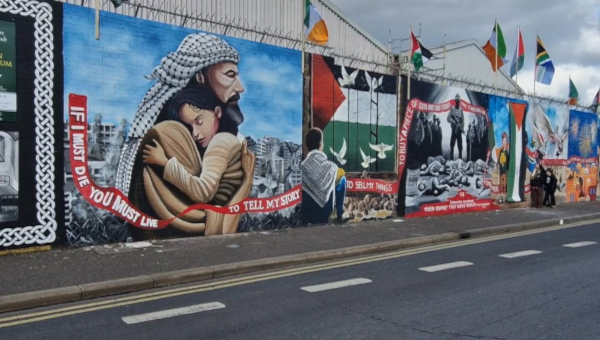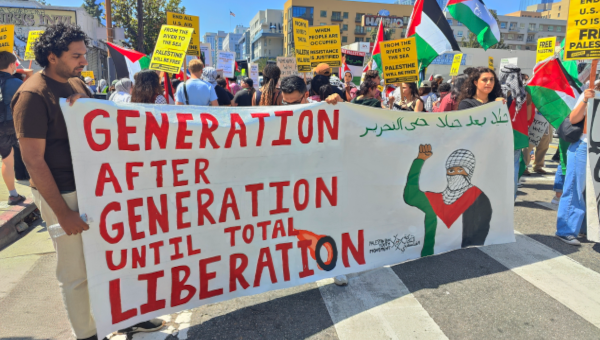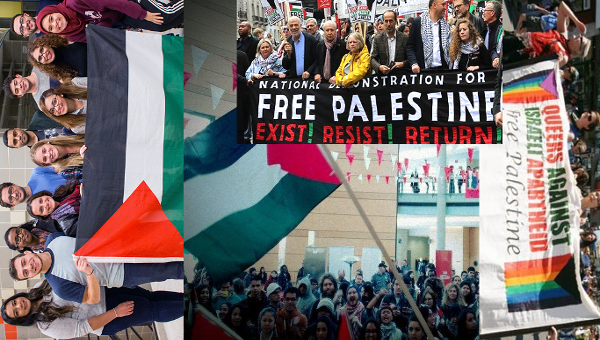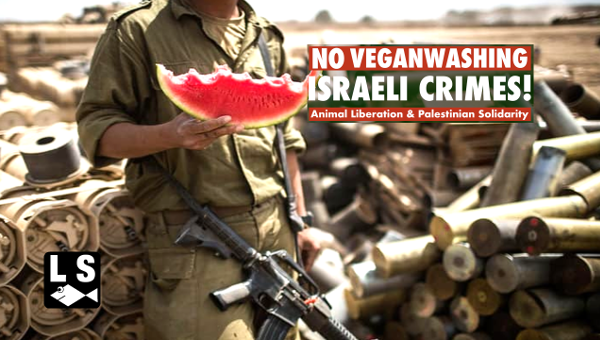Countering Palestine Solidarity Work in Canada
“Words wreak havoc when they find a name for what had up to then been lived namelessly” – Jean Paul Sartre
Over the past several months of 2008, Israel advocacy organizations have entered a period of ongoing mobilization in an effort to decisively counter what they see as the growing influence and impact of the Palestine solidarity movement.
After spending years trying to find its footing in the aftermath of the Oslo Accords, the Palestine solidarity movement has found a new strategic focus with the emergence of the campaign for boycott, divestment and sanctions (BDS), which has effectively shifted the terms of the Israel-Palestine debate and presented a clear analysis of the apartheid reality facing Palestinians.
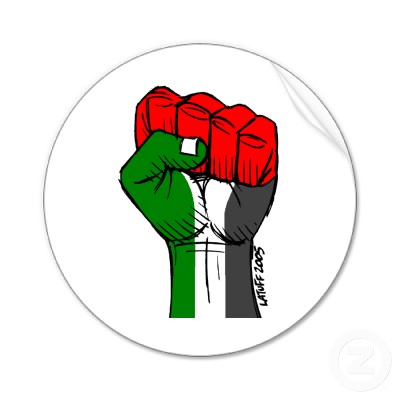 These shifts have thrown the mainstream Zionist movement into a state of crisis as it finds itself unable to effectively counter the charge of apartheid. In addition, Zionist organizations find themselves increasingly isolated (with the exception of right-wing, conservative and Christian evangelical circles) as the solidarity movement continues to gain traction amongst an ever larger spectrum of audiences and organizations.
These shifts have thrown the mainstream Zionist movement into a state of crisis as it finds itself unable to effectively counter the charge of apartheid. In addition, Zionist organizations find themselves increasingly isolated (with the exception of right-wing, conservative and Christian evangelical circles) as the solidarity movement continues to gain traction amongst an ever larger spectrum of audiences and organizations.
It is against this backdrop that a divided Zionist movement is seeking ways to reverse their organizational and ideological disarray. Most significantly, the emergence of this repressive trend directed at Palestine solidarity work is converging with a broader targeting of students who are active in other struggles.
Shifting Solidarity: The Development of a New Politics in the Aftermath of Oslo
The onset of the second Intifada in September 2000 open the eyes of many who had up until then still harboured illusions as to the nature of the Oslo process. Far from leading to the establishment of an independent Palestinian state, the “process” merely served to distract from the ongoing colonization of the West Bank and Gaza Strip. Instead of a winding down of the occupation, the matrix of Israeli control intensified. Land continued to be expropriated, Palestinian population centers were increasingly isolated and surrounded by expanding settlements, and life remained regimented by hundreds of Israeli checkpoints.
These developments were aided by the destruction of the Palestine Liberation Organization (PLO) as a fighting force. Since the late-1960s the PLO had been the driving force behind Palestinian nationalism. Almost overnight, however, it ceased to be a vehicle of resistance and liberation, busying itself with “running the world’s most highly publicized municipalities,” as Eqbal Ahmed accurately noted.
With Oslo, the focus of the Palestinian struggle narrowed from resisting the advances of a settler-colonial state to one of accommodation and “state building” in West Bank and Gaza Strip. This accommodation with Zionism sidelined the efforts of refugees and represented a retreat from the fundamental demand of the Palestinian national movement: the right of return to lands from which they were expelled in 1948.
The demand for the right of return had united and linked a dispersed nation – those in exile abroad and in the refugee camps of the neighbouring Arab states, those living under Israeli occupation, as well as Palestinians living inside what became Israel – under a common political platform. The more recent demand for an end to Israeli occupation and the creation of a Palestinian state alongside Israel, formalized in 1988 – sidelined the core issue of the conflict and in the process it marginalized all those not residing in the occupied territories.
It was into the political vacuum created by the destruction of the PLO and the marginalization of the refugees that a new generation of Palestinian organizers has made its mark. Under their leadership, the solidarity movement has moved beyond the narrow confines of the ‘occupation framework’ imposed on it since 1993 towards a more holistic understanding of the contours of Israeli apartheid. This fuller understanding of the actual situation confronting the Palestinian people has opened up new possibilities for effective solidarity.
Integral to this shift in emphasis was the placing of Palestinian experiences and perspectives at the core of solidarity organizing. Over the next few years, activists new to the movement were introduced to it through an unambiguously anti-Zionist lens in which Israel was located through the prism of history as a product of European settler colonialism. When compared to similar colonial enterprises that developed in South Africa and North America, a new understanding began to emerge as to the roots and dimensions of the conflict, as well as steps that needed to be taken in order challenge it.
These political developments began to coalesce in 2005 with the call from Palestinian civil society for a comprehensive campaign of isolation through the use of BDS. Modeled after the struggle against South African apartheid, the call highlighted the dependent nature of the Israeli state. The BDS call was not a new strategy. Rather, it expressed in new language a position that the Palestinian left has advanced for decades: there should be no normalization of relationships with the oppressor. It was correctly understood that the Israeli system could not retain its Zionist character against indigenous resistance were it not for its international bases of support. The swift and determined response from solidarity organizations and international civil society to the call caught Israel advocacy organizations off guard, as they were increasingly forced to respond to grassroots initiatives undertaken to isolate the Israeli state. As time went on and the Palestine solidarity movement grew in strength, it has become clear that this movement increasingly represents a real and effective challenge to Israel’s Canadian base of support.
Contention in the Universities
To a large extent what informs the pro-apartheid effort to counter the anti-apartheid work being done by Palestine solidarity activists is the perception that time is ‘running out’. Throughout the world more and more people are coming towards an accurate understanding of the Israel-Palestine conflict. They are in turn translating that understanding into various forms of political action. Significantly, on the campuses and in the wider public, Israeli apartheid is now increasingly spoken of as a concrete reality, and not merely as an opinion or slogan.
This new found clarity as to the nature of the political problem surrounding the ‘question of Palestine’ is precisely what the Zionist movement is opposing. Using a variety of tactics, it aims to silence, repress, defuse and divert the efforts of those who have taken a principled stand in support of Palestine (and who have thereby questioned the ongoing legitimacy of Israel’s apartheid project).
This is seen most clearly on the campuses. As was the case with the emergence of the movement to isolate apartheid South Africa, it has been until very recently student organizations that have taken the lead in agitating for Palestinian liberation. The struggle on the campuses initially took the form of building awareness as to the nature of the Israeli state, its negation of Palestinian rights, and of its brutal suppression of the Intifada. In time these efforts shifted more towards researching and organizing against the campus institutions that were complicit in sustaining the structures of apartheid in Palestine, efforts that were given an added push after the call for the BDS campaign in 2005.
Key to the student movement’s successful growth was a new proactive form of activism. This activism not only seeks to respond to this or that event, but to push an analysis, open debate and move toward action.
An example of this proactive approach to organizing was the development of Israeli Apartheid Week. First undertaken at the University of Toronto in 2005 to introduce to the public the apartheid analysis, it has since spread to 25 cities around the world with South Africa and Palestine participating in 2008. This remarkable growth, tied to an increasingly coordinated and successful campaign for an academic boycott of Israeli institutions, has caused a visceral panic among Zionist organizations. After initially attempting to ignore and downplay the significance of this movement, these organizations have turned to a more direct policy of repression, intimidation and bureaucratic threats against campus activists.
This was given its first articulation in the summer of 2007, when the presidents of over 20 Canadian universities unilaterally issued statements opposing an academic boycott of Israeli academic institutions. The publication of these letters (prominently reported on university websites and in major Canadian newspapers) followed the passing of a pro-boycott resolution by academic unions in the UK. It was clearly a co-ordinated and pre-emptive move by the Zionist movement against similar resolutions in Canada. Taking place as it did in the summer, it can only be assumed that that moment was chosen so as to neutralize student criticism and opposition.
Nevertheless, student groups responded in a clever and effective manner to this bureaucratic attempt to shut-down debate before it had even begun. Students on many campuses raised the call for an open and honest debate on the question of an academic boycott. If, the students argued, university presidents were seriously committed to the principles of ‘free speech’, then why did they act to unilaterally silence any debate on Israeli policies and the responsibility of academia? A very important victory in this regard was won at Ryerson University, Toronto, where a progressive student association – working in alliance with student groups on campus – was able to win the President’s support for a debate on academic boycott. Over 600 Ryerson community members turned out to hear the debate which was resoundingly and convincingly won by the anti-apartheid side.
The Ryerson victory was soon followed by the most successful series of Israeli Apartheid Week (IAW) events since the week began in 2005. Exceeding all expectations, over 2000 people attended IAW events in Toronto (events also happened in Montreal, Ottawa, Vancouver, Victoria, Peterborough, and New Brunswick). The Zionist response to IAW was confused and marked by incompetence. Pro-Israel organizations attacked the week in paid full-page advertisements in national newspapers (including one in the National Post that accused IAW organizers of being “anti-Semantic” [sic]). Campus newspapers across the country were filled with advertisements, reminiscent of the South African apartheid regime, proclaiming the supposed ‘democratic’ and ‘multicultural’ virtues of Israel. In Ottawa, the Israeli ambassador to Canada organized a public forum to speak against IAW. The meeting was poorly attended and he was convincingly shamed by audience members.
On some campuses, Zionist groups attempted to organize counter-events but these were poorly attended and by their own admission failed miserably. At the University of Toronto, for example, a Zionist event that promised a free, hard-cover book on Israel to the first 50 audience members had only 12 people in attendance. At exactly the same time, over 300 people packed a university auditorium for the IAW lecture. A pro-apartheid demonstration organized by the far-right Jewish Defense League on the first night of Israeli Apartheid week at Ryerson University attracted a meager 25 individuals, while, at the same time, over 350 people attended the IAW lecture that night.
Embracing Repression
Following the success of IAW, the Zionist movement has moved to openly embrace a strategy of repression against student activists. This strategy of repression is combined with bureaucratic attempts to prevent students from organizing politically, restricting the use of university space, or shutting-down speeches about Palestine. It is absolutely critical for left and progressive movements across Canada to recognize this trend and to organize openly against it.
One of the most shocking indications of this repressive atmosphere is a campaign by Zionist organizations to convince university administrations to ban the phrase “Israeli Apartheid.” At McMaster University in Hamilton, for example, students organizing IAW events on their campuses were issued with a letter from the Provost office informing them that the university had banned the term “Israeli Apartheid” from use by student clubs. This effectively ended their participation in the week as they were then barred from attaining the necessary approval to advertise, book rooms, etc. A massive mobilization by students and community allies forced the university to backtrack from this position. Nevertheless, letters and articles by Zionist organizations and supporters continue to appear in local Hamilton newspapers calling for further repression.
At the University of Toronto, 125 faculty members published an open letter in the National Post stating their opposition to Israeli Apartheid Week at “their” institution, requesting “that the administration stop this hateful and divisive event from returning to our University in future years.” The Israel advocacy organizations were quick to applaud this latest attack on student’s freedom of speech and right to organize. Foremost among the voices calling for repression was Avi Benlolo of the Friends of Simon Wiesenthal Centre who explained his organization’s hope “that faculty at other universities across Canada and around the world follow in their footsteps and present a united front in opposing the hatred” supposedly evidenced at IAW. That these academics would openly call for this type of McCarthyite response to a phrase that is widely accepted in academic and other settings, indicates both the fear which the Zionist movement has of the new anti-apartheid struggle and the measures to which they are willing to go to prevent this struggle from growing.
At York University, where the past few years have seen Palestine solidarity activists arrested and arbitrarily expelled for their efforts, as well as confronted with a number of disciplinary and administrative measures to curtail activism on campus, Students Against Israeli Apartheid (SAIA) were recently fined $150 for tabling after complaints were filed by students affiliated with the several Zionist organizations active on campus. Included in the university administration’s decision was a 30 day ban of SAIA using any of the university’s facilities and space for organizing, even tabling information.
The complaints against SAIA were issued by students from on campus Zionist organizations, namely executive members of the Hasbara Fellowship at York. This organization, which recently made inroads into Canadian universities, was founded in 2001 in conjunction with the Israeli Ministry of Foreign Affairs. Its express purpose is to train students to be “effective pro-Israel activists on their campuses.” Every summer, hundreds of students are brought to Israel, given access to high ranking Israeli officials, and “return to their campuses as leaders in the fight for Israel’s image” their website states.
What this “fight” translates to when it is put into practice by this wing of the Zionist movement is a campaign comprised largely of intimidation, slander, threats and repression. Those engaged in tabling efforts are routinely swarmed by Zionist students who attempt to engage in shouting matches and distract activists from directly engaging with the broader student body. Often, when this fails, they make politically charged complaints to administration officials, who as in the case of York prove only too willing to respond with fines, disciplinary proceedings, and other punitive measures.
The ‘Liberal’ Zionist Response
Aside from repression and raising bureaucratic barriers to organizing, the liberal faction of the Zionist movement also seeks to provide its own ‘alternatives’ to Palestine activism. It is critical to understand this wing of the Zionist movement as an integral feature of the repressive strategy. Both the ‘liberal’ and ‘right-wing’ faces of Zionism need to be understood as two-sides of the same coin. They act to sustain and support each other and need to be actively opposed by anyone concerned with real justice.
As Dan Freeman-Maloy, a student activist at York recently noted, one way in which this relationship works is through using one or another right-wing organization to “make displays of Palestine solidarity on campus appear as unproductive shouting matches.” The intent being that, having created the shouting matches, “the way is clear for seemingly more moderate Israel advocates to chime in to say that all this shouting is unproductive, and that anger regarding Israeli state policy is best diffused through one or another ineffectual channel.” An excellent example of this in 2008 has been Hillel’s Peacemaker computer game that was toured around during Israeli Apartheid Week.
The game had as its goal “for the player, taking on the role as either an Israeli of Palestinian leader, to achieve peace.” Tilley Shames, associate director of Hillel GTA, noted: “Our intention is to have it on three different campuses during the [IAW] week in very public spaces so students can come together and try their hand at peace… It shows that these are really complex issues that can’t be narrowed down to slogans.” Yet, for all its supposed complexity, the organizers are confident that the issues are somehow able to be narrowed down to a poorly designed computer game with bad politics.
The call for ‘dialogue’ is the precise complement to Zionist repression. Presenting the struggle for justice in Palestine as a ‘complex problem’ requiring ‘painful compromises on both sides’ is designed to obfuscate the relationship between the oppressor and oppressed. No-one (at least today) would argue that South African Apartheid was simply a misunderstanding between blacks and whites: it was a system of oppression designed to institutionalize racial oppression. Standing for justice means taking sides and being prepared to work to end the root cause of the problem. The empty calls for ‘dialogue’ and ‘peace’ do precisely the opposite: they serve to equate the oppressor and oppressed and thereby sanction the status quo. By refusing to take a clear stand against racism and oppression the advocates of dialogue actually DO choose which side of the fence they stand.
The call for dialogue is also intended to paint those who do take a clear stand for justice as ‘extremists’ who should be feared and isolated. That is why the kind of dialogue advocated by Shames and others helps to justify and maintain the repression of Palestinian activists on campus and elsewhere. In contrast, the call for boycott, divestment and sanctions against Israeli apartheid works to undermine this type of ideological subterfuge. The BDS strategy clearly identifies the root cause of the problem and helps people to understand that any kind of relationship with the structures of Israeli Apartheid is morally wrong. Isolation of the apartheid regime in Israel is actually the fastest route to peace and justice.
Beyond the Campuses:
Rebranding the Apartheid State
As the anti-apartheid movement has grown, it has moved from the campuses and into the broader community. High school students, faith organizations, labour unions and community associations are now playing an increasingly active role in supporting Palestinian rights.
Israel advocacy organizations, which have traditionally controlled the discussion of Israel-Palestine in the public realm, are also undertaking new efforts to block the advances of the solidarity movement beyond the campuses.
A two-day “brainstorming” session was held in Toronto this past March as part of a $4-million project to “rebrand” Israel. Organized by the Israeli Foreign Ministry and attended by the leadership from the Canadian Jewish Congress, Canada-Israel Committee, the UJA Federation of Greater Toronto and Hillel among others, the campaign seeks to present a presumably more ‘accurate picture of Israel’ by getting Canadians to think of Israel outside the “narrow prism of the Arab-Israeli conflict.”
The necessity of diverting the attention of Canadians away from the core issues of the conflict was clearly explained by Israel’s consul general to Toronto, Amir Gissin during a recent event organized by the Canadian Friends of Peace Now and National Jewish Campus Life. “What is becoming more and more critical” Gissan noted, was the ability of Israel’s critics “to present Israel or brand Israel as the new South Africa… to brand Israel an apartheid state.” Also worrisome in his view was the tendency of the solidarity movement to call for “a one-state solution rather than a two-state solution.”
Lest anyone confuse the nature of the Ministry’s campaign, Ido Aharoni, founder of the “Brand Israel” concept and head of the ministry’s brand management team highlighted what was on the line. Speaking to the Toronto Star, Aharoni explained that “a better image for Israel and a better performance of that image is part and parcel with Israel’s national security. Contrary to popular belief, national security is not just based on military power; it’s also a strong economy and a strong image.” Both of which have been undermined internationally.
Aside from public relations to rebrand Israel there is also a growing effort to rebrand those engaged in Palestine solidarity organizing. Attempts have been made and a great deal of money spent to portray the solidarity movement as unduly divisive, encouraging anti-Semitism and classify our anti-racist activism and messaging as ‘hate speech’.
After an anti-Semitic incident at York University, Frank Dimant, the Executive Vice President of B’nai Birth attempted to tie Israeli Apartheid Week to the perceived ‘growth’ of anti-Semitism. “Poisonous messages of this nature, infused with hate and violence, does not occur in a vacuum,” he was keen to note. Referring to IAW, Dimant argues that “once a university has lent its premises to an event that promotes hate against one segment of its student body, it is predictable that other acts of hate will likely follow.” Other Zionist leaders were quick to follow this line without ever specifying what it was about IAW exactly that promoted ‘hate’.
It was further disclosed some time ago in the Jewish Tribune, the publication of B’nai Birth, that efforts were underway to open police investigations on those using the term apartheid, and to have solidarity organizations brought before the Ontario Human Rights Commission for their ongoing “hate speech.” This despite University of Toronto president David Naylor’s own admission that the term “Israeli Apartheid” had been sent to the Toronto Police’s Hate Crimes Unit and that they found no basis unto which to label the term ‘hate’.
Turning the Tide
The Israel at 60 celebrations have given the Zionist movement ample time and opportunity to mobilize their constituency and the public around the issues pertaining to Israel’s perceived success and challenges. Yet, even their celebrations are facing boycotts.
Palestinian citizens of Israel have refused to take part, participating instead in commemorations of the Nakba. Over 100 Palestinian organizations have called for boycotts, and international cultural festivals are now routinely marred by controversy, opposition and boycott when attempting to ‘celebrate’ the 60 years of Palestinian dispossession and ethnic-cleansing on which the Israeli state was founded.
The celebrations, like much of the programming undertaken to counter the work done by the solidarity movement has as its aim the elimination from public discussion of any references to refugees, or their inherent right of return. They want to eliminate discussion of settler colonialism and ethnic cleansing in Palestine, a practice that is ongoing. Above all, the understanding of Israel as an apartheid state, which has served to put all these other policies into a coherent historical context, is to be sidelined from public discussion. Repressive efforts towards these ends are ongoing, but are assured no guarantee of success.
Opposition to Israeli apartheid has grown significantly, and Zionist propaganda efforts look increasingly desperate as they either try to avoid the issue of apartheid, or counter it with the superficialities of life for Palestinian citizens of the state of Israel. Nevertheless, this counter-mobilization is something that must be discussed and combated. The Zionist movement is increasingly resorting to intimidation, repression and bureaucratic measures that are closing space for debate, organizing and action on our campuses and in our communities. It is imperative that the left and progressive movements in Canada understand this, draw the appropriate conclusions, and act accordingly. •


